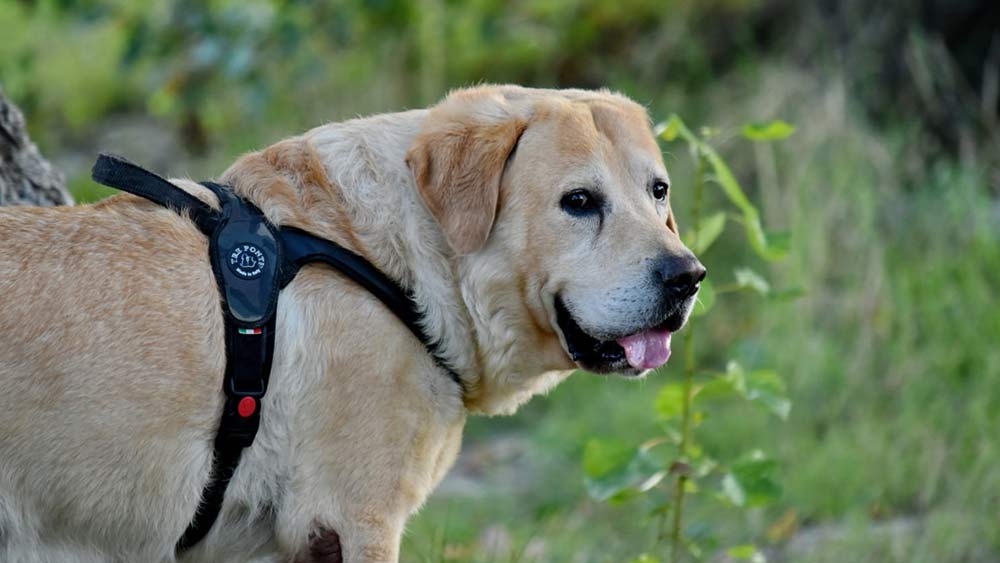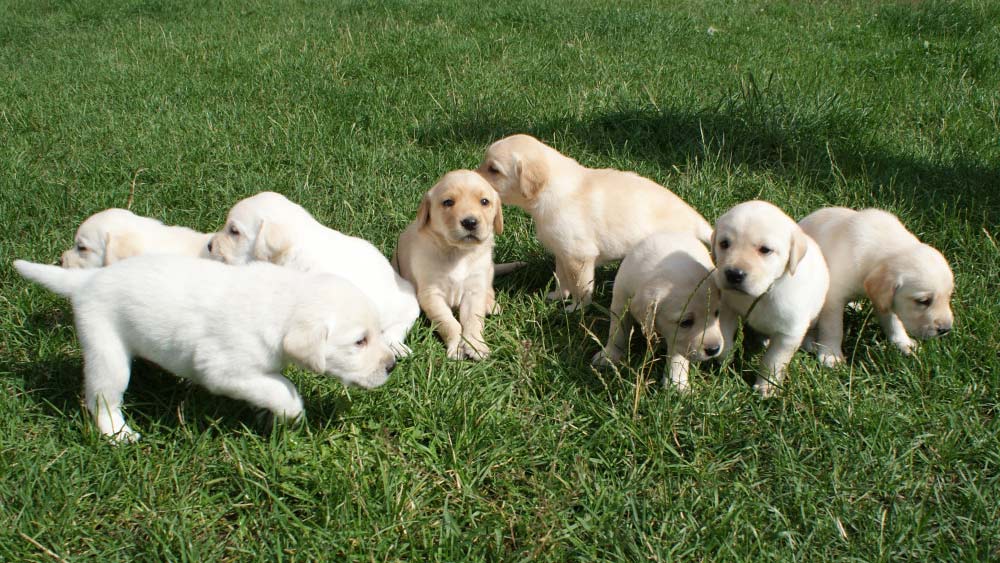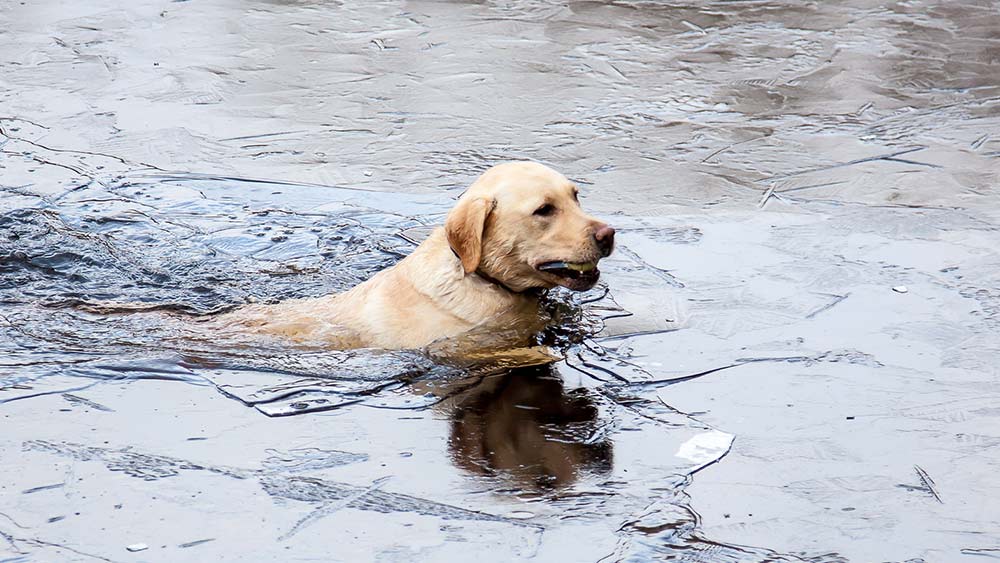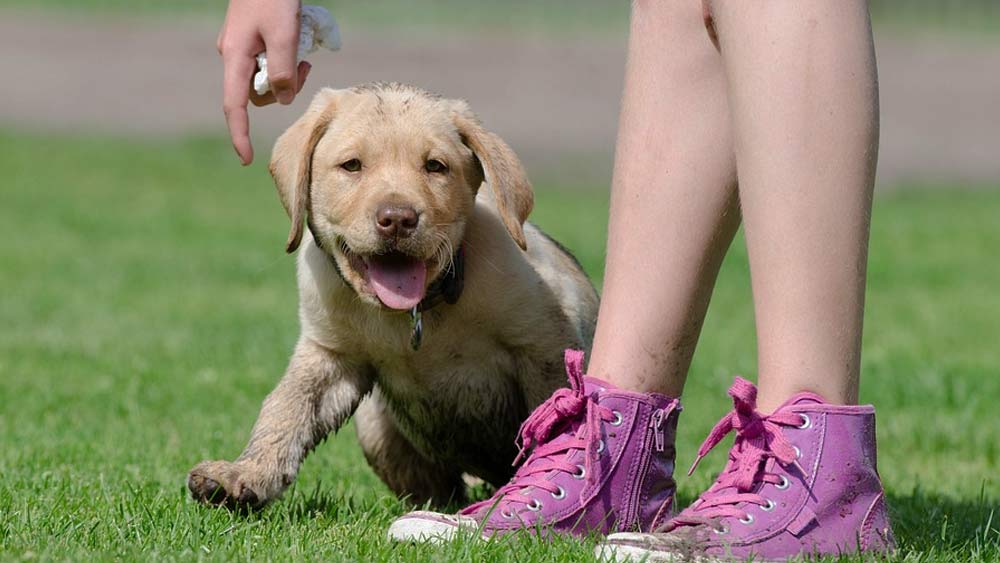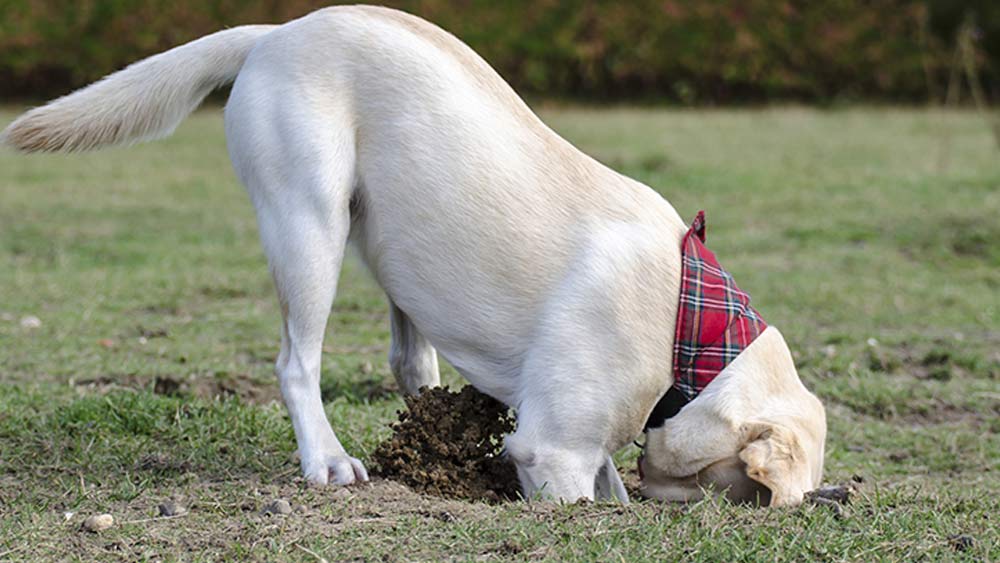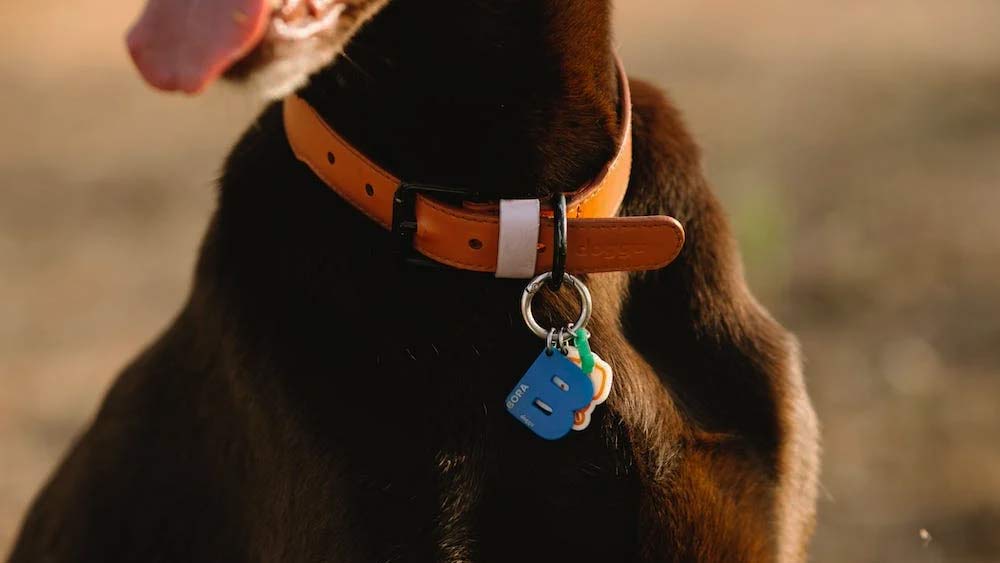Pregnancy is one of the most important stages in the life of a female dog. This 63-day period necessitates special attention to ensure your Labrador retriever remains healthy and has a pain-free delivery, resulting in healthy puppies. There are numerous diets for pregnant Labrador retrievers on the market that guarantee meeting the nutritional needs of pregnant dogs. However, it would be preferable if you had all of the information you needed to make the best decision for your pregnant Labrador retriever.
Labrador retrievers who are pregnant or nursing have very specific dietary needs. When feeding and caring for the mother, extra care and thought should be taken to ensure her health and the health of her unborn children.
what should a dog eat while pregnant and then again while nursing? If you know the proper diet for pregnant Labrador retrievers and what foods to add to the diet during pregnancy and after delivery, your Labrador retrievers can have a healthy pregnancy. Before we get started, let’s talk about Labrador retriever pregnancy.
Read More: Labrador retriever Types : (0 to 100 Explained)
How Many Labrador Retriever Puppies Are Born in a Litter?
A pregnant Labrador retriever can have four to twelve puppies, with eight being the average and typical number.
A Labrador might only have one puppy. Despite the remote possibility, it is entirely possible for a Labrador Retriever or any other dog breed to have only one pup during its pregnancy. Due to being raised as a lone pup, the pup may grow up with disadvantages and be unprepared to connect with other dogs.
When is the best time to breed a Labrador Retriever?
Although a male Labrador Retriever can breed as young as six months old and a female Labrador Retriever can go into heat between the ages of six and twelve, dogs should never be forced to breed at such a young age.
A breeder would often wait for two or three heating cycles before declaring a female Labrador Retriever ready to breed, usually after 24 months.
Read More: Labrador retrievers’ growth timeline ( from puppies to adults )
Preparing for a Labrador Retriever Pregnancy
Preparing for your dog’s pregnancy includes more than just knowing the best diet for pregnant Labrador retrievers. The physical demands of pregnancy and nursing may be difficult for dogs who are not in perfect or at least good condition. If your dog is overweight or underweight, it can cause pregnancy complications. It can be difficult for skinny dogs to consume enough food to meet the nutritional needs of both themselves and their puppies. Overweight dogs may have difficulty laboring.
As a result, it is critical to consume a well-balanced diet prior to breeding. If you properly prepare your dog for pregnancy, you can avoid a variety of health issues.
What foods should pregnant dogs eat, and what foods should nursing dogs eat? Which diet is best for pregnant Labrador retrievers? Here are the important details.
Pregnant Labrador Retriever Diet
Understanding what a good diet for pregnant Labrador retrievers is is the key to keeping your pregnant Labrador retriever and her puppies healthy in any situation.
A pregnant dog’s diet should be high in vitamins, and providing your dog with the proper nutrition will help prevent issues like eclampsia (low blood calcium) and puppy mortality. Food portions and timing will also differ depending on the week of her pregnancy.
The essential diet information
- Each pound of food must contain at least 22% protein and 1600 kcal of digestible energy.
- If she appears to be losing weight, try moistening the meal or switching to a more nutrient-dense diet.
- Always keep a clean bowl with plenty of fresh water.
- A Labrador retriever’s pregnancy usually lasts nine weeks. The first six to seven weeks should not require significantly more food than usual.
- A pregnant Labrador retriever’s weight will increase between weeks six and seven. • Her appetite may diminish or disappear in week nine.
Dietary recommendations
Be aware of all the phases before developing a diet for pregnant Labrador retrievers. Pregnant Labs have a 9-week gestation period, and you should adjust your dog’s nutrients in her meals based on the week she is in.
during the initial four weeks You can feed your dog as usual without increasing the number of meals. By week 5, you should be adding 20-30% more food to your pregnant dog’s diet. Around six weeks, her babies will begin to grow, and your dog’s stomach will begin to shrink. As a result, you’ll have to start feeding her less frequently and in smaller amounts.
By week eight, you should be feeding your pregnant dog about 50% more food than she was before. Because of labour, she will begin to refuse meals and eat less in the final week of her pregnancy. Some dogs eat roughly 25% less food than they did the previous week, and many will fast for a few days.
Keep in mind the specific formulas or recipes you use, as well as what to feed a pregnant Labrador retriever. Choose highly digestible foods if you feed your dog commercial food. This can help her get the most nutrition out of food while posing minimum risks.
Essential factors about a diet for pregnant Labrador retriever
Before creating a diet, consult with your veterinarian about what to feed a pregnant dog. Also, keep in mind that your dog will require different amounts of food at different stages of her pregnancy because her nutritional needs will vary slightly.
fat
To meet an increased calorie requirement, your dog’s fat intake may be increased. It occurs most frequently after week 6 of pregnancy. When that time comes, your Labrador retriever will need to consume more red meat that is higher in fat.
Vitamins
Vitamin C, vitamin D, and folate, also known as vitamin B9, are all essential components of a pregnant Labrador retriever’s diet.
Vitamin C can help your Labrador retriever’s body absorb iron in addition to supporting the immune system and assisting with tissue growth.
Most fruits, vegetables, and organ meats contain vitamin C. Salmon aids calcium absorption; foods high in vitamin D include canned mackerel, dairy products, and eggs. Folate is essential in preventing a variety of birth defects. Pork, poultry, and liver are all excellent sources of folate, but you should be cautious when feeding liver to your pregnant dog because it also contains a lot of nutrition, which can harm unborn puppies if consumed in large quantities.
Vitamin A intake for a medium-sized dog, such as a Labrador retriever, should not exceed 2,000 mg per day in a balanced diet.
Protein
Your dog must consume protein if she is to obtain the essential amino acids required to promote the growth of her puppies. Try to feed your dog high-quality protein while she is pregnant or nursing. Focus on chicken, turkey, beef, lamb, and fish (as long as she isn’t allergic to any of them), as they are high-quality protein sources. Dairy and egg products are also good sources of high-quality protein to include in the diet of pregnant Labrador retrievers.
Minerals
Although all minerals are necessary, Labrador retrievers require the most calcium, iron, and phosphorus during pregnancy and breastfeeding.
Iron can help with red blood cell production and prevent anemia, which is common in pregnant dogs. The best sources of iron are animal products such as beef and pork. Calcium is essential for the development of the fetus’s teeth and bones. Calcium is therefore essential for nursing dogs to produce more milk. Calcium is most abundant in bones.
However, from week seven until delivery, you should avoid giving your dog bones because it may cause health problems such as uterine inertia.
Because the body will take calcium from the dog’s bones if there is no calcium in the diet, phosphorus can also help pups’ developing bones and prevent problems with the pregnant dog’s bones. Phosphorus is best found in eggs and fish.
Watch this video of DAISY DUKE HAD 8 PUPPIES!!
Do nutrition problems affect a Labrador retriever’s pregnancy?
A successful pregnancy and breeding are facilitated by good nutrition. An overweight and an underweight Labrador retriever who is malnourished will experience problems having puppies.
- The major nutrition-related issue in breeding dogs is obesity.
- being overweight might reduce the number of eggs released during ovulation, leading to fewer puppies.
- Dystocia chance rises with weight problems (difficulty delivering).
- weight problems can lessen milk production at some point of lactation, harming the growth and health of puppies.
- Before breeding, a dog who’s obese has to shed weight.
Suitable homemade Diet for pregnant Labrador retrievers
Make sure your pregnant Labrador retriever gets plenty of premium meat in her homemade diet. You can feed your dog raw meat on the bone or minced meat that still has the bone. This will provide her with the calcium, lipids, and protein she requires. Beef is the best option.
Every homemade dish you make should include one egg because they are high in protein and minerals. Regular dairy foods, such as cheese, can be included in your Labrador retriever’s diet plan.
Yogurt can improve the flavor of your dog’s food while also providing probiotics for healthy digestion. Because they are a great source of iron, fiber, and folate—all of which are important for pregnant and nursing dogs.
Oats, flaxseeds, and brown rice are the best grains for her.
Boiled eggs are an excellent addition to the diet of pregnant Labrador retrievers. Eggs are safe for dogs to eat. Eggs are a great source of linoleic acid, fat-soluble vitamins like vitamin A, and protein. Boiled eggs can be added to your pregnant dog’s diet to provide extra nutrition.
Because salmon and other fatty fish are high in omega-3 essential fatty acids, they should be included in your dog’s diet; fish oil is also beneficial.
According to some holistic veterinarians, red raspberries can hasten and ease labor. Try to incorporate it into your pregnant Labrador retrievers’ diet, as it can also aid in milk production while lactating.
While fish oil and omega-3 fatty acids are beneficial, cod liver oil should be avoided because it contains an excess of vitamin A. Examine the amount of vitamin A your pregnant Labrador gets from other foods such as salmon, eggs, sweet potatoes, and carrots.
Aside from that, remember to limit your dog’s calcium intake during the last two weeks of her pregnancy.
How much food should a pregnant Labrador retriever eat at each stage of her Pregnancy?
Nothing major will change during the first part of the Pregnancy, and she will continue eating normally.
Aside from your usual meal mix, The best ingredients to add to a diet for pregnant Labrador retrievers might be:
- A fresh egg
- Seaweed for minerals
- A few frozen mussels for manganese
- a little fish oil (with NO ADDED vitamin A)
- A few blueberries (antioxidants)
Begin gradually increasing the number of meals and fat as your dog goes through the pregnancy phases.
After the delivery and as her pups develop, the mother`s stomach capacity will decrease. Reduce her portion sizes and feed her more frequently—three, four, maybe even five times a day.
At this point, you can also add more fat to her diet. To achieve this, choose more red meats (duck, hog, and beef) than white meats (chicken, turkey, fish). One of the simplest methods to provide much-needed energy is fatty beef mince.
Why is variety crucial in a diet for pregnant Labs?
Each meat has its own amino acid composition, and each organ contains a variety of nutrients and bioactive substances. Do not rely on a “one-size-fits-all” food item or recipe to meet all of her nutritional needs, especially during pregnancy, when those needs change almost daily. The only way to account for all of this is to provide her with a variety of high-quality ingredients.
Return to Pre-Pregnancy Diet And Lifestyle
Four to five weeks after birth, most puppies begin to show an interest in their mother’s meals. The puppies will gradually stop nursing and begin eating more solid food. Typically, the nursing mother will begin to eat less at the same time. Most puppies can fully eat and digest solid food by the age of 7 to 8 weeks. By this point, the mother’s energy requirements should have returned to normal, and she should be eating the same foods she did before becoming pregnant.
When you know what to feed a nursing Labrador retriever to generate more milk, you can stick to commercial dog food brands. If you’ve talked to your veterinarian and know how to prepare nutritious homemade dog food on a regular basis, this can be an ideal diet for pregnant and nursing dogs. Keep track of all calories and nutrients in the Labrador Retriever Diet. It is critical that you do so!
Conclusion
Caring for pregnant dogs is an exciting adventure. It would be preferable if you met your pregnant Labrador retriever’s nutritional needs in order to increase the chances of her pregnancy and delivery going smoothly.
What you feed pregnant Labrador retrievers has a big impact on both the mother and her cups.
Some key takeaways about the best diet for pregnant Labrador retrievers:
- While your dog is pregnant or nursing, it’s essential to make sure they get plenty of high-quality protein in its diet.
- Only by providing her with various high-quality ingredients can you ensure that your Labrador retriever will have a healthy pregnancy.
- Pregnant Labrador retrievers require extensive attention and care.
- Among the many things you should do to get ready for your dog’s Pregnancy is to learn what to feed a pregnant Labrador Retriever.
- Protein is essential if you want your dog to get the amino acids she needs to help her puppies grow.
- Pregnant Labrador retrievers tend to gain a bit of weight between weeks 6 and 7 when they are about halfway through their pregnancies.
- Starting around week 5, you should feed your pregnant dog 20-30% more than she did before she became pregnant.
- You can help your Labrador retriever’s body absorb iron by giving it vitamin C, which also helps the immune system and tissue growth.
- Protein-rich foods like beef and pork are some of the best sources of iron. Calcium is essential for the development of the baby’s teeth and bones.
- In addition to the other minerals, calcium, iron, and phosphorus are especially important for a puppy’s development and growth during pregnancy and breastfeeding.
- Obesity is the primary health risk when your dog is pregnant. Dystocia is more likely in dogs who are overweight.
- Oats, flaxseeds, and brown rice are the best grain options to add to a diet for pregnant Labrador retrievers. Eggs pose no danger to a dog’s digestive system.
- adding salmon and other fatty fish into your dog’s diet is a good idea because these fish are rich in omega-3 essential fatty acids. Fish oil is also beneficial.
- During the last three weeks of her pregnancy, limiting your dog’s calcium intake is essential.
at the end watch this video of a lab giving birth to puppies. this video might not be for the light stomached people because it documented the natural birth of puppies
Read More: Having a Labrador as a Pet: Pros & Cons
Read More: Potty Train Your Labrador: 10-Step Guide
Read More: 16 Tips for Socializing Your Labrador Puppy + FAQs
Read More: Are Labradors Protective of Their Families? Explained!


